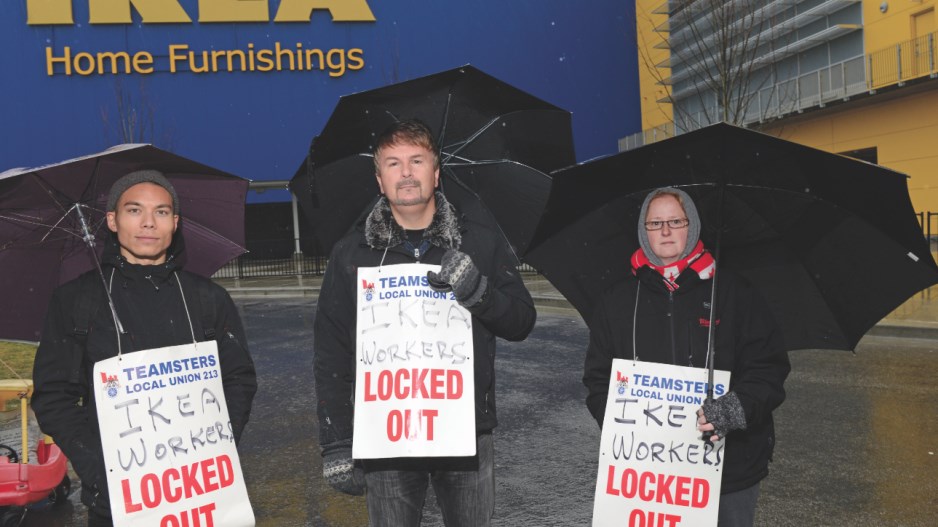The ongoing labour dispute between IKEA Richmond and the Teamsters Local 213 has barely budged since the union served IKEA with a 72-hour strike notice on May 9, 2013.
More than 300 employees have been picketing since May. The union said it has three leading concerns: the wage progression, benefits and the contracting out of work.
According to the union, IKEA has been moving backwards from the previous bargaining agreement.
“We’re looking to negotiate around the premise of the existing agreement, but we’re not willing to see the concessions that the company is looking for,” said Anita Dawson, business agent for Teamsters Local 213.
IKEA spokeswoman Madeleine Löwenborg-Frick said the company is trying to bring this location in line with the rest of the country.
“The Richmond store has been underperforming all the other stores in Canada. They have the highest staff costs and the lowest productivity,” she said.
Just two of IKEA’s 12 Canadian locations are unionized. The other is in Montreal. According to an IKEA statement, 50% of employees at the Richmond location make $18 an hour or more and 25% make $21 an hour or more.
Löwenborg-Frick added that all employees make more than the province’s minimum wage of $10.25.
“There’s a real difference of perspective here,” said Tom Knight, labour relations professor at the University of British Columbia (UBC) Sauder School of Business. “Sometimes there is a corporate directive that, ‘We must cut costs by such and such a percentage.’ But the union has been saying, ‘No, we will not give up what we negotiated previously.’”
But Knight believes other forces are at work, too.
“What’s said publicly is one thing, and the absolute facts are another thing.”
More broadly, Knight said a weak economy has made employers more aggressive, and many people are now indebted to such a degree that they can’t afford not to work.
Another major sticking point has been the status of picket-crossing employees. In June, the union expelled 35 members for refusing to strike. It said it wants them removed from the Richmond store.
According to a company statement, IKEA made an interim proposal on December 17 that would allow everyone to return to work while negotiations continue. According to Löwenborg-Frick, the union shot it down because it would have allowed the 35 expelled workers to keep their Richmond jobs.
The union’s response is “pretty normal,” said Mark Thompson, UBC Sauder professor emeritus of labour relations. “The guys on the picket line are watching these other people walk in happily every day and collect their pay. It’s a very emotional thing.”
Over the last eight months, the union has encouraged people to boycott IKEA and has held public demonstrations to draw attention to its labour grievances. The tactic might have a local impact, but Thompson said it’s unlikely to affect the company’s global brand. •




